Authentication Laboratory
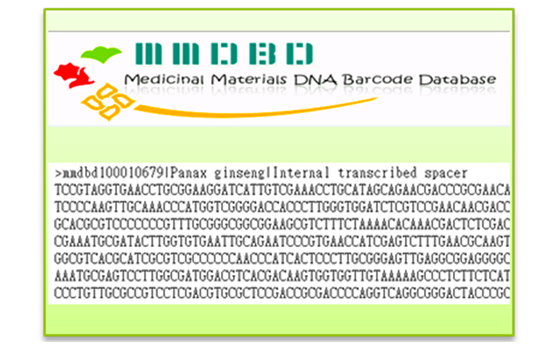
Generation of the first TCM DNA database
An integrated DNA barcode multimedia information platform - Medicinal Materials DNA Barcode Database (MMDBD) (http://www.cuhk.edu.hk/icm/mmdbd.htm) was developed in 2010. This is the first database of its kind and the database is kept on constant upgrading. This database provides a simple web-based interface to retrieve DNA barcode information for species identification. MMDBD has three major functions: database query by text-based interface, sequence similarity search, and data submission.
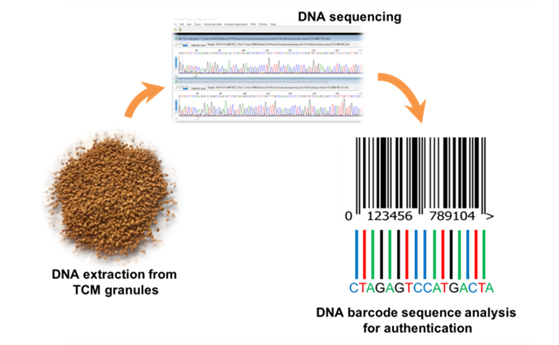
Extending DNA authentication to processed medicinal materials
DNA technology was viewed as not applicable on processed medicinal materials owing to DNA degradation during processing. Our group is the first to extend the use of DNA authentication techniques to processed medicinal materials like decoctions and granules. We showed that DNA could be obtained from decoctions and concentrated Chinese medicine granules. Identification of individual herbs in multi-herb decoctions could also be achieved. This breakthrough discovery extends the use of DNA authentication to processed medicinal materials and strengthens the application of DNA technology for the authentication and quality control of processed TCM products. ).
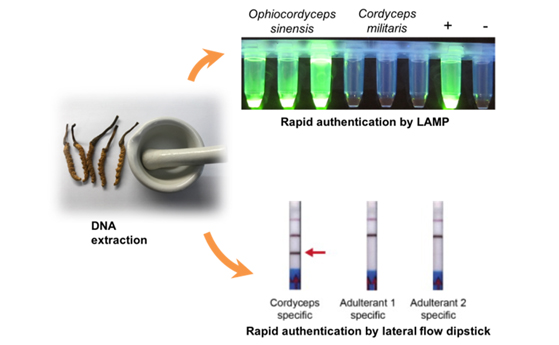
Developing DNA protocols for rapid and on-site authentication of medicinal materials
Species identification by conventional DNA barcoding is laborious and time consuming, making it difficult to perform high-throughput analysis. To cope with the needs of the industry and regulatory agencies, our group has developed several molecular methods to rapidly authenticate selected medicinal materials that are commonly adulterated. The loop-mediated isothermal amplification (LAMP) method has been applied to authenticate herbal tea ingredient Hedyotis diffusa Willd., Cordyceps herbs and to differentiate deer tendons from cattle tendons.
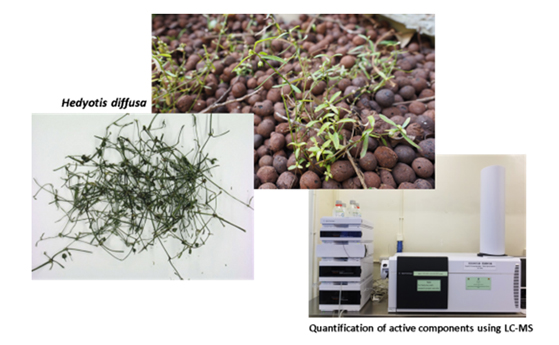
Investigation on the effects of environmental changes on the concentration of active components in commonly used anti-cancer herb Hedyotis diffusa
(In collaboration with Prof. Hiromichi Itoh, Graduate School of Agricultural Science and Faculty of Agriculture, Kobe University, Japan)
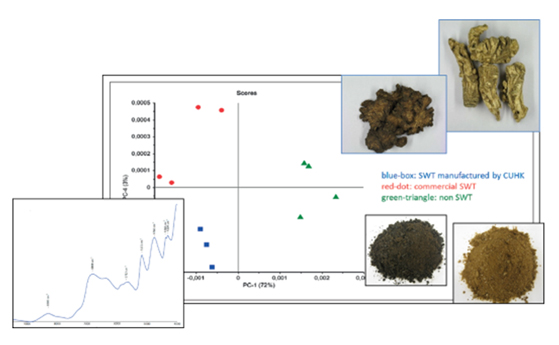
Application of infrared spectroscopic techniques for the non-invasive and rapid quality control of Chinese herbal medicines
(In collaboration with Prof. Christian Huck, Institute of Analytical Chemistry and Radiochemistry, CCB-Center for Chemistry and Biomedicine, Leopold-Franzens University, Innsbruck, Austria and School of Pharmacy, CUHK)